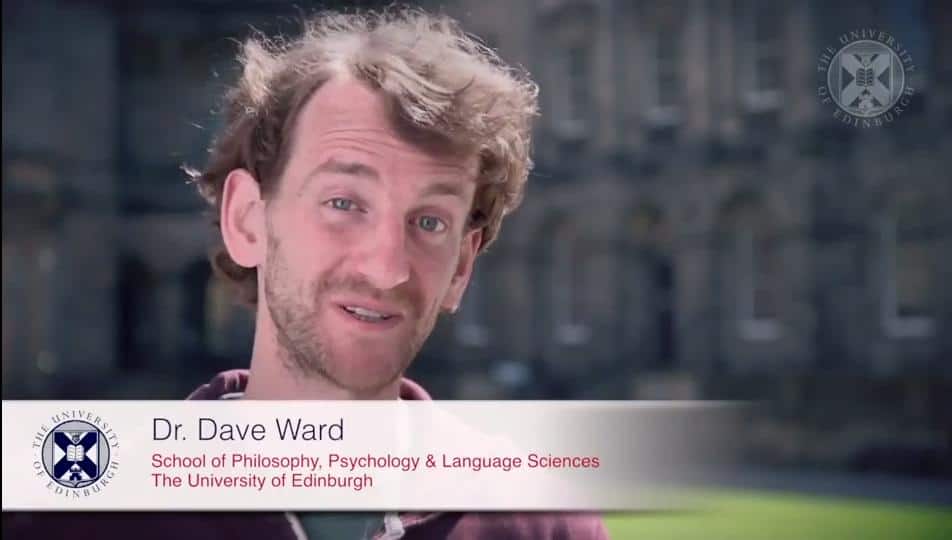Course Review: Introduction to Philosophy by the University of Edinburgh on Coursera
Enjoy a philosophical intervention with an intro to philosophy and it’s sub-disciplines.
Review by Ayush Agarwal. Took the course? Write your own review here. Read all reviews.
The MOOC was more than conducive to a beginner like me and introduced me to philosophy and it’s sub-disciplines.
I’ve had a congenital affinity for critical and philosophical thinking and wanted to know more about fundamental philosophical questions. I wanted to develop my amateur interest in philosophy into a disciplined acquaintance and my search led me to Introduction to Philosophy, which was offered in the Fall 2014. I was a bit intimidated with the idea of participating in a formal course to study philosophy because I was an absolute beginner. However, the MOOC was more than conducive to a beginner like me and introduced me to philosophy and it’s sub-disciplines, such as epistemology, philosophy of mind and computers, morality and ethics, philosophy of science and the philosophy of time travel. Expect a philosophical treat if you’re thinking about taking this course!
THE INSTRUCTORS
Dr. David Ward introduces the course and tells you what philosophy is and how you should do it.
Professor Duncan Pritchard, the Director of Edinburgh’s EIDYN research centre, and Dr. Alan Hazlett talk about epistemology and skepticism.
Dr. Jane Suilin Lavelle talks about the philosophy of mind and computers.
Dr. Matthew Chrisman explains concepts in morality and ethics.
Dr. Michela Massimi, the editor-in-chief of the British Journal for Philosophy of Science, introduces you to the philosophy of science.
Dr. Alasdair Richmond talks about the philosophy of time travel.
THE COURSE
It was the first time I realized that the word “certainty” is hollow.
Ironically, one of the most difficult questions in philosophy is “What is Philosophy?.” David Ward starts the course with just this question. He says that philosophy is difficult, important and ubiquitous in our lives. Duncan Pritchard and Alan Hazlett talk about epistemology – the philosophy of knowledge and skepticism. This was an interesting part of the course for me because it was the first time I realized that the word “certainty” is hollow. Apparently, “justified true belief” doesn’t constitute knowledge and the idea for the movie The Matrix was derived from the “brain in a vat” argument. Understanding the human brain has long been an enigma. The mathematician and philosopher Rene Descartes thought that the mind and the body were separate entities. Although the “mind-body dualism theory” is mostly rejected by contemporary philosophers, you’ll learn about physicalism and functionalism. You’ll also learn about Alan Turing’s “imitation game” and how it stacks up against John Searles’ “chinese room argument“. The juxtaposition of computer science and philosophy in this part of the course produce a computational view of the mind which was extremely interesting for a computer science major like me.

Illustration of Searle’s Chinese room – By TheChineseRoom (Own work) [CC BY-SA 3.0 or GFDL], via Wikimedia Commons
Michela Massimi talks about the philosophy of science and highlights the importance of learning not just science but the history and philosophy of it as well. It’s one thing to just understand Kepler’s and Copernicus’ laws in your typical physics class and but the story of the struggle to achieve that knowledge is a lesson in itself. Moreover, it generates passion and love for science that a bland theoretical representation may never do. After all, humans are story-telling animals.
It’s one thing to just understand Kepler’s and Copernicus’ laws in your typical physics class and but the story of the struggle to achieve that knowledge is a lesson in itself.
Alasdair Richmond was quite interested in his pedagogy and that was reflected by his Steampunk outfit and his presentation of the famous metaphysical and philosophical topic of time travel, which has spawned innumerable tales of science fiction. You’ll learn about how time travel works and why you probably won’t be able to kill your grandfather by traveling back in time even if you wanted to.
GRADING
The quizzes could be solved easily even if you didn’t watch the lectures or study any of the material in this course!
This is where I was a bit disappointed while taking this course. The quizzes could be solved easily even if you didn’t watch the lectures or study any of the material in this course! It has become a well-established fact that practice testing is the most efficient method of learning something and unfortunately, the quizzes were a let-down.
The peer review assignment consists of several questions and you have to choose one to write a short essay on a particular topic that you found interesting in the course. The peer review was interesting, but it didn’t contribute towards the final grade. Overall, it’s a child’s play to score well in this course.
WRAP UP
Introduction to Philosophy is definitely conducive for an absolute beginner and you can expect to be acquainted with philosophy when you complete this course. If you’re looking for a challenge, additional reading links are provided each week. The course didn’t consume more than four hours a week of my time, but I devoted at least eight for further exploration while working my way through a semester in college. Although the course only tends to scratch the surface of the topics that are introduced, you are free to dive deeper if you want.
Introduction to Philosophy is definitely conducive for an absolute beginner and you can expect to be acquainted with philosophy when you complete this course.
CONTINUE YOUR PHILOSOPHICAL JOURNEY
This wonderful but easy course left me wanting more and I found several resources to satisfy my appetite:
• Bobby Brady’s 28 Free Philosophy Courses for a Well-Examined Life article was quite helpful.
• MIT’s 24.00x: Introduction to Philosophy: God, Knowledge and Consciousness MOOC on edX is, in my opinion, the next best thing after you complete this MOOC.
• Yale’s Moralities of Everyday Life is another appreciable option.If you’re interested in logic and debate, the Think Again: How to Reason and Argue MOOC might interest you.
• If you are interested in specific philosophers and their ideologies, the Soren Kierkegaard – Subjectivity, Irony and the Crisis of Modernity MOOC might hold your interest.
• I’ve chosen to continue my philosophical journey by reading Robert Audi’s book Epistemology: A Contemporary Introduction to the Theory of Knowledge.
• Watch Jim Holt’s TED Talk about Why Does the Universe Exist?
• Read David Deutsch’s mind-expanding article about Artificial General Intelligence and how Philosophy might solve a problem that Science hasn’t been able to.
Editor’s Note: Review by Ayush Agarwal. Ayush will receive his Bachelor’s Degree this year and he is interested in Computer Science, Philosophy and the Natural Sciences. He maintains a blog on Quora and enjoys listening to ambient music.






